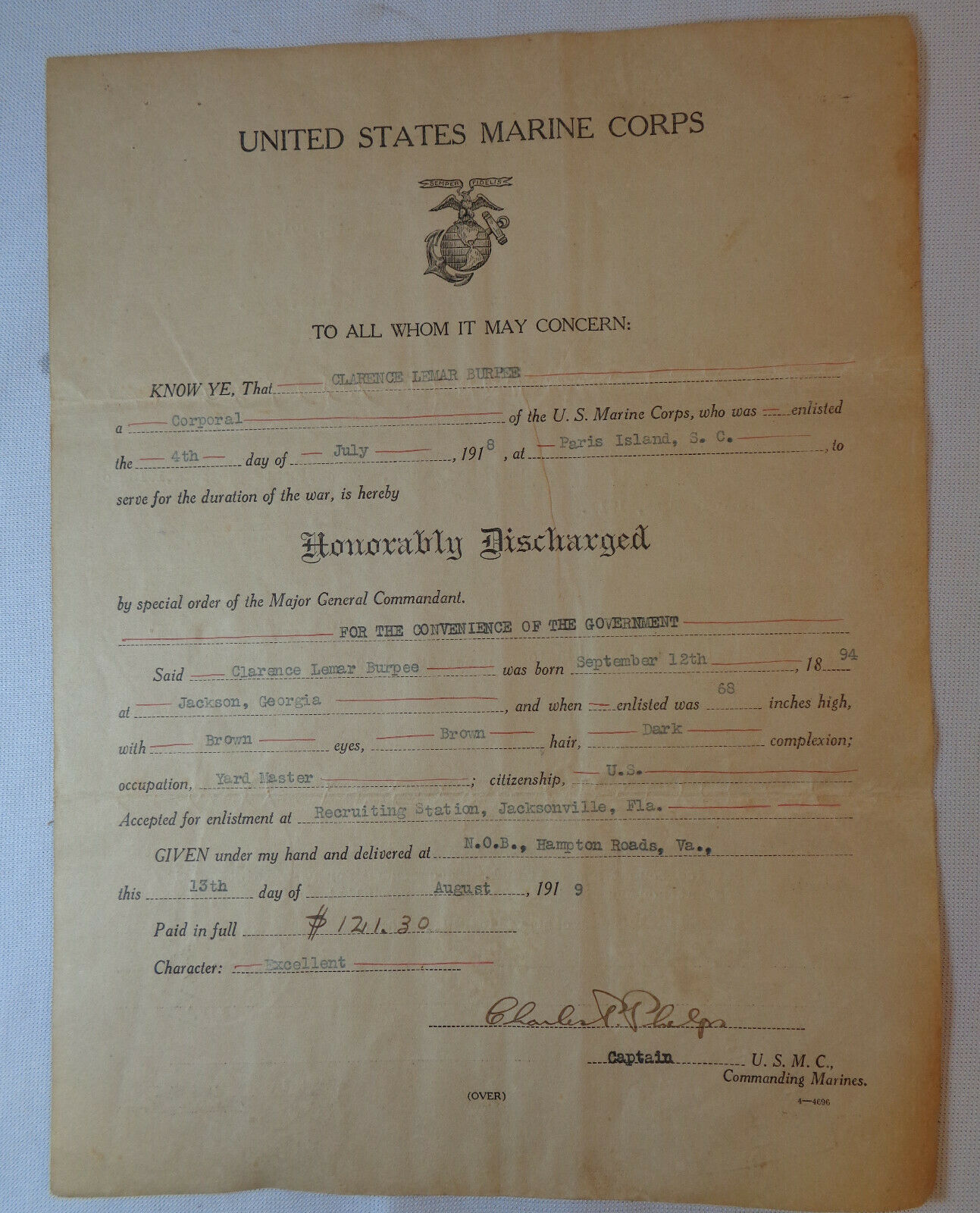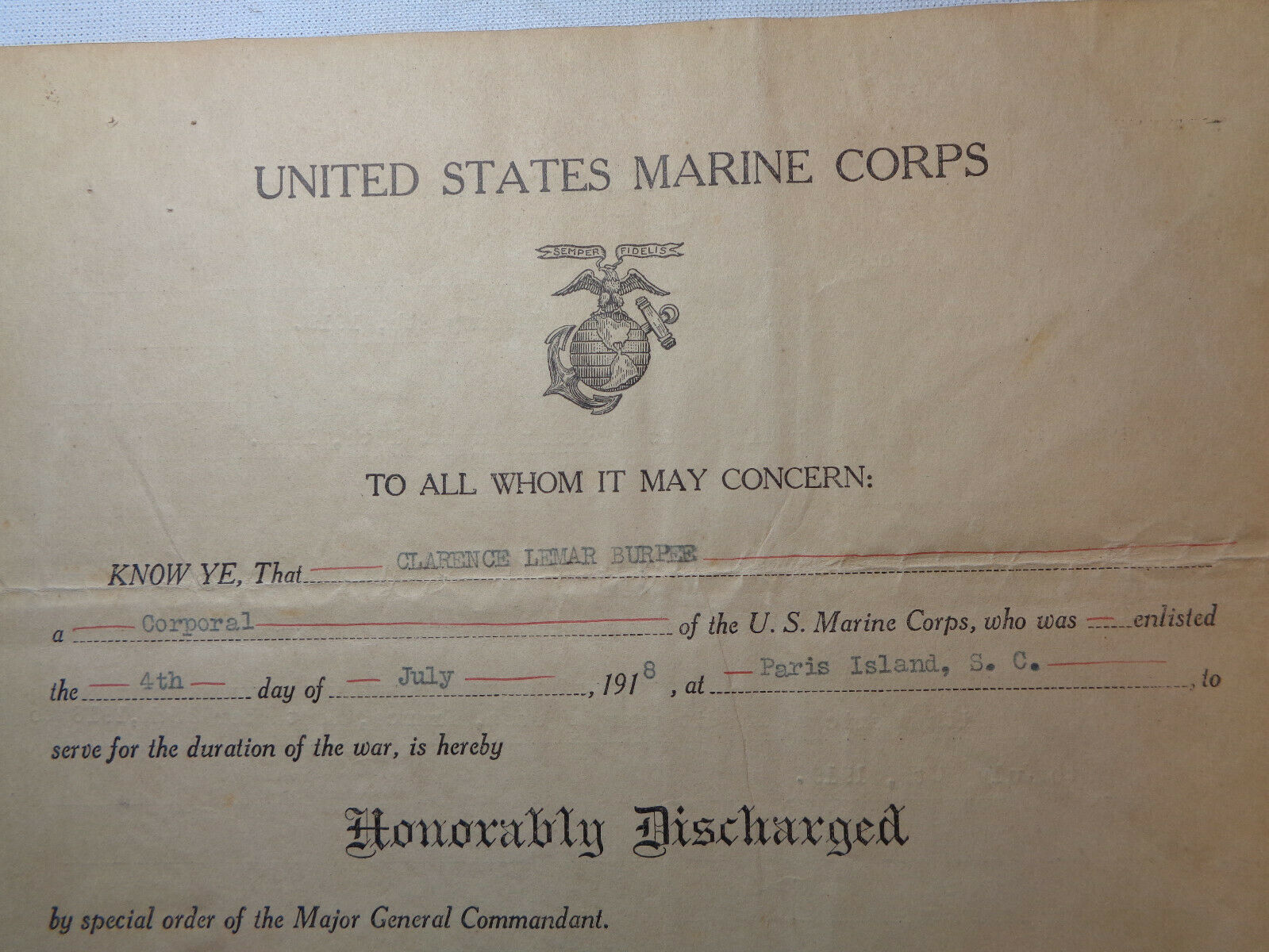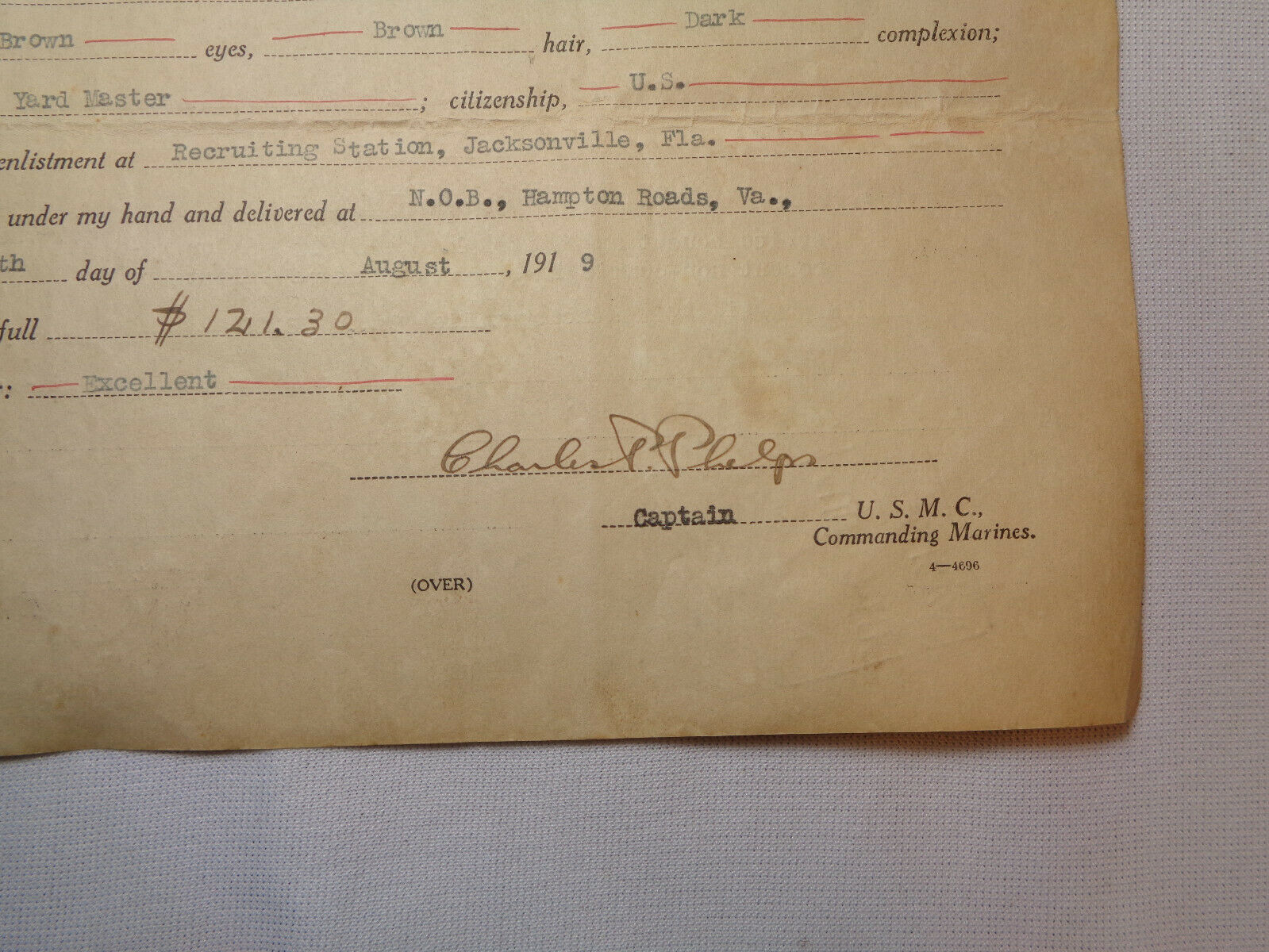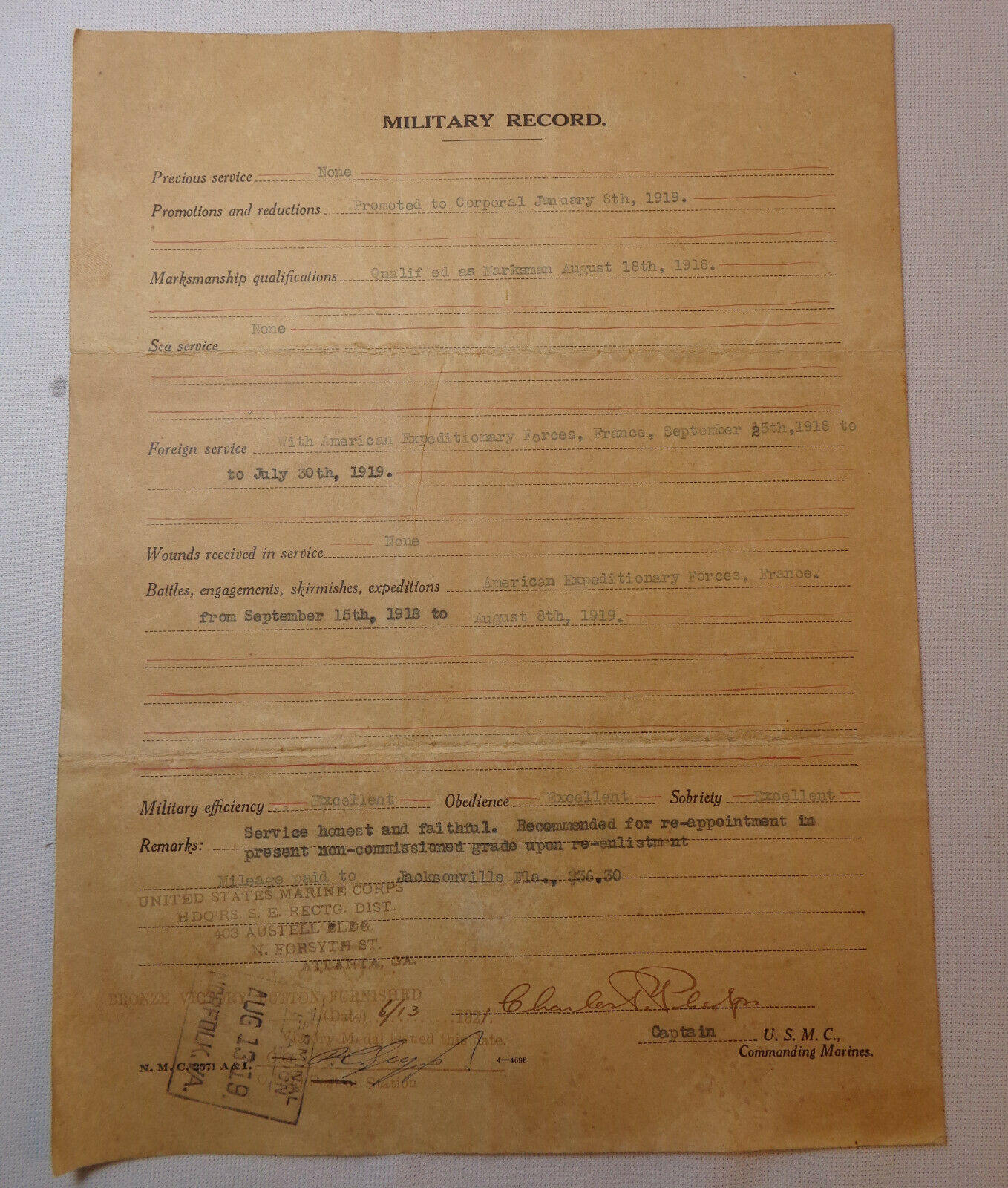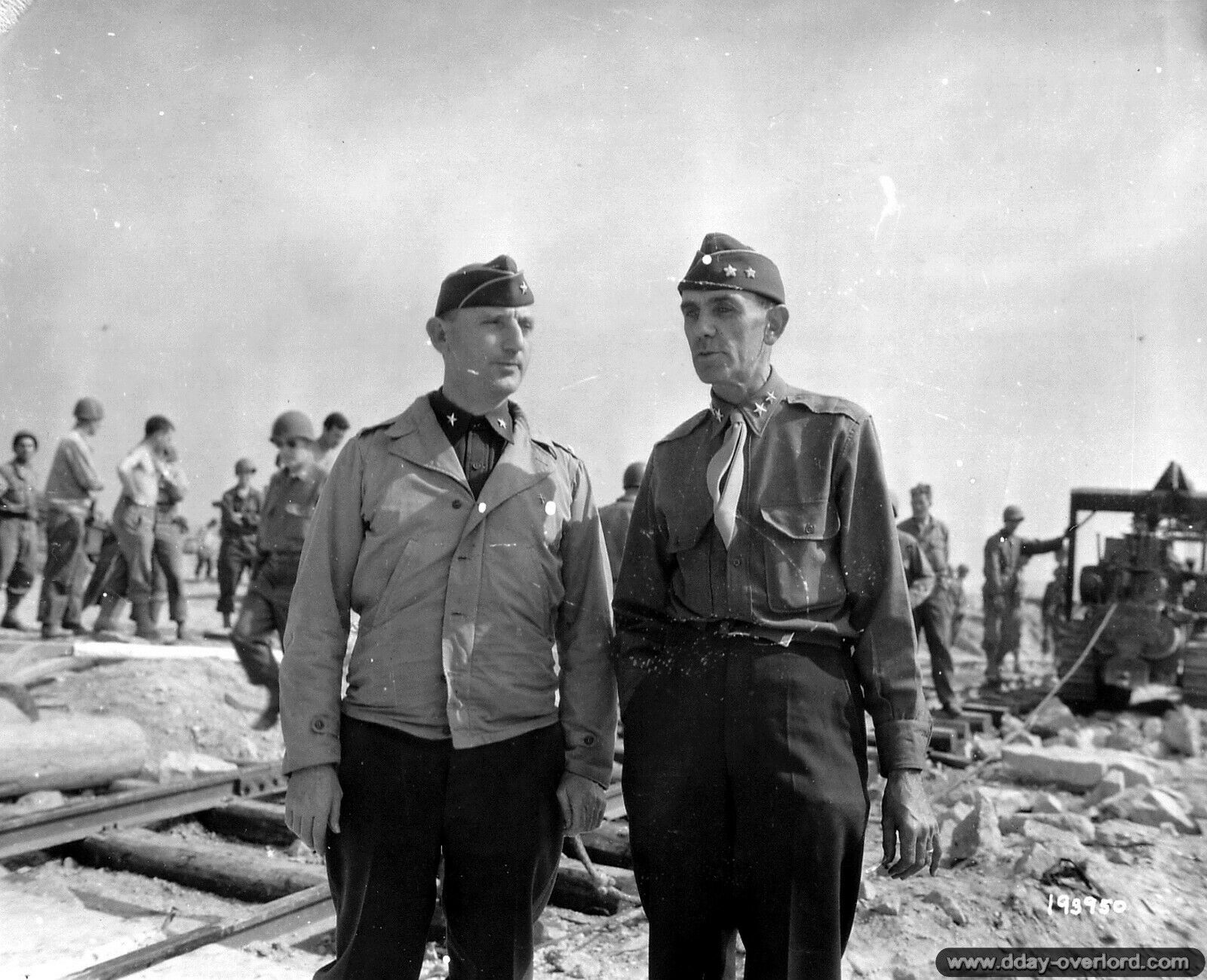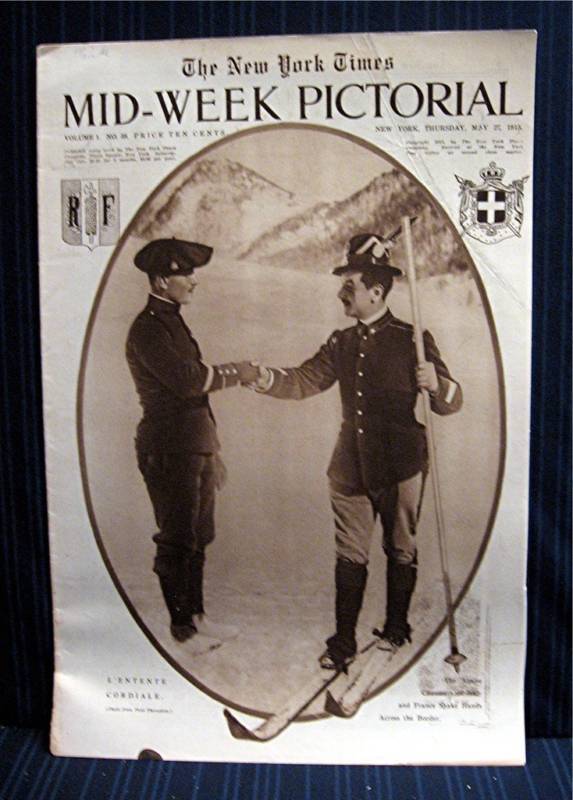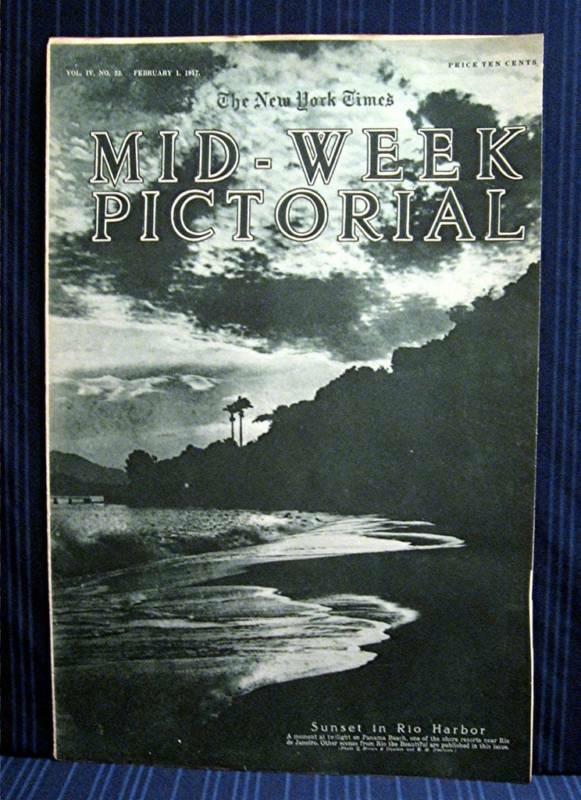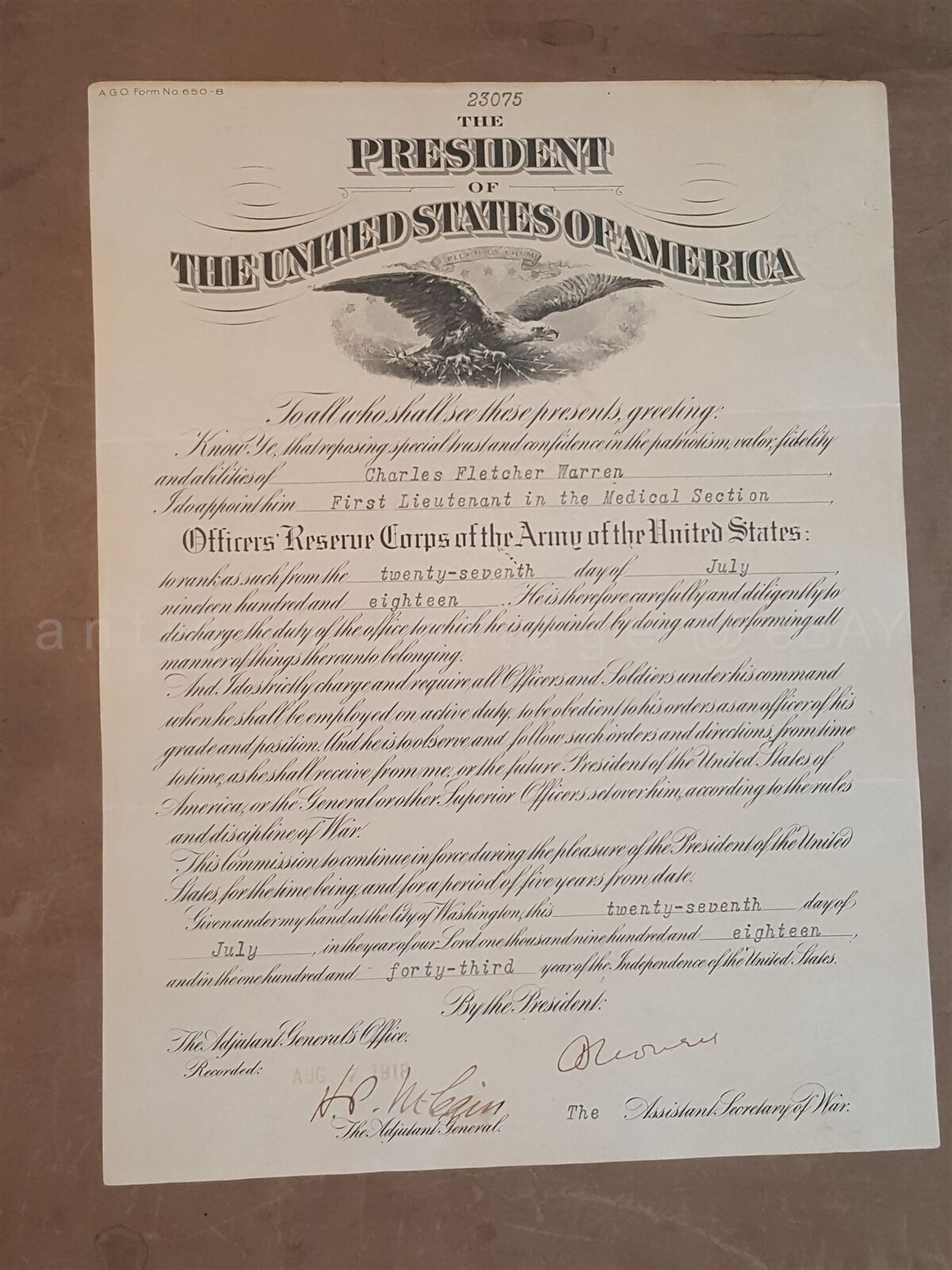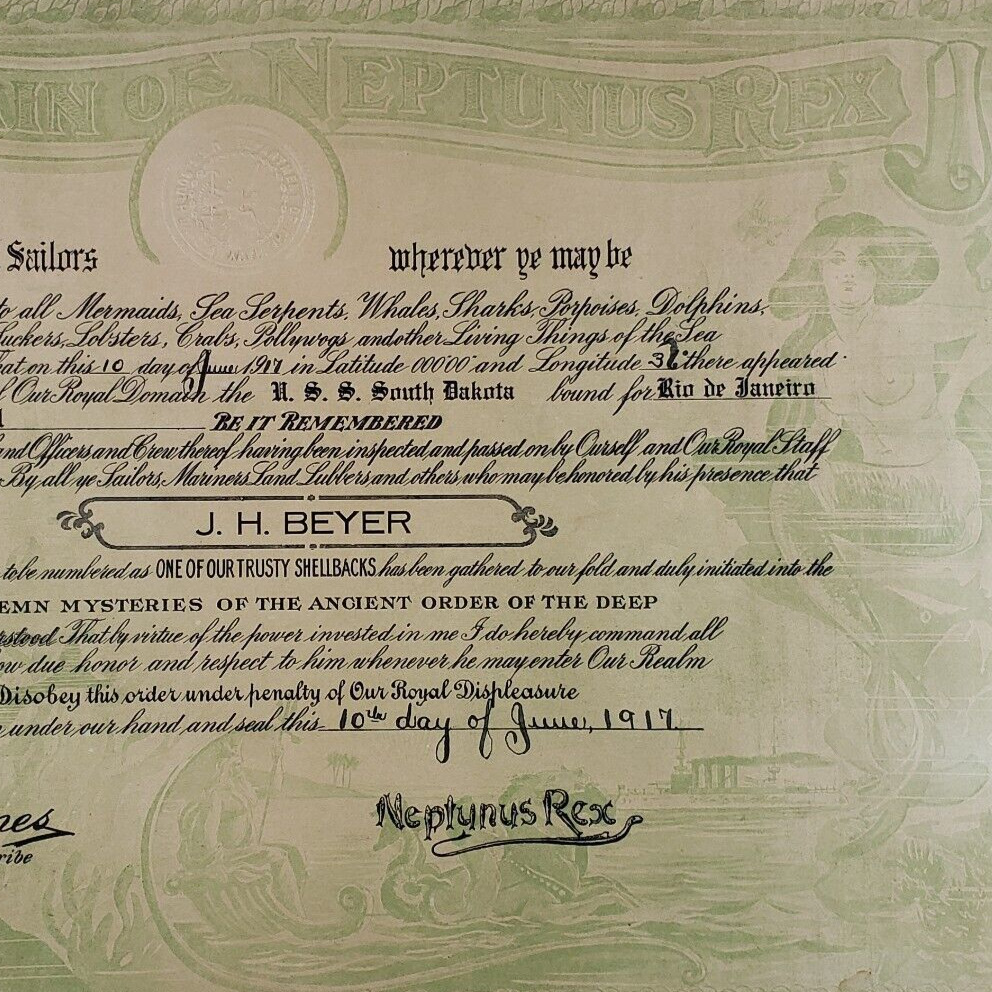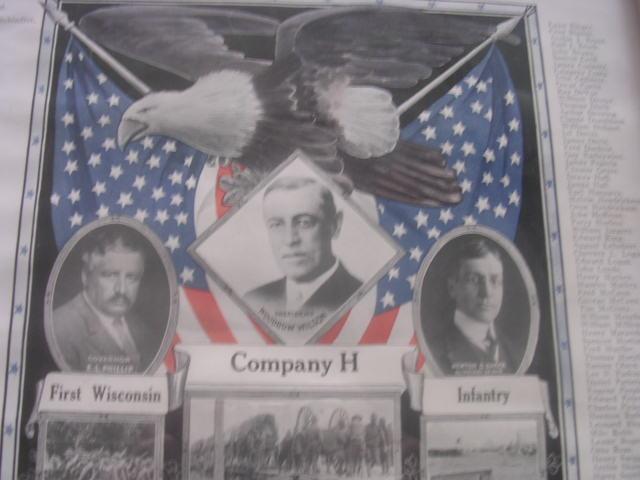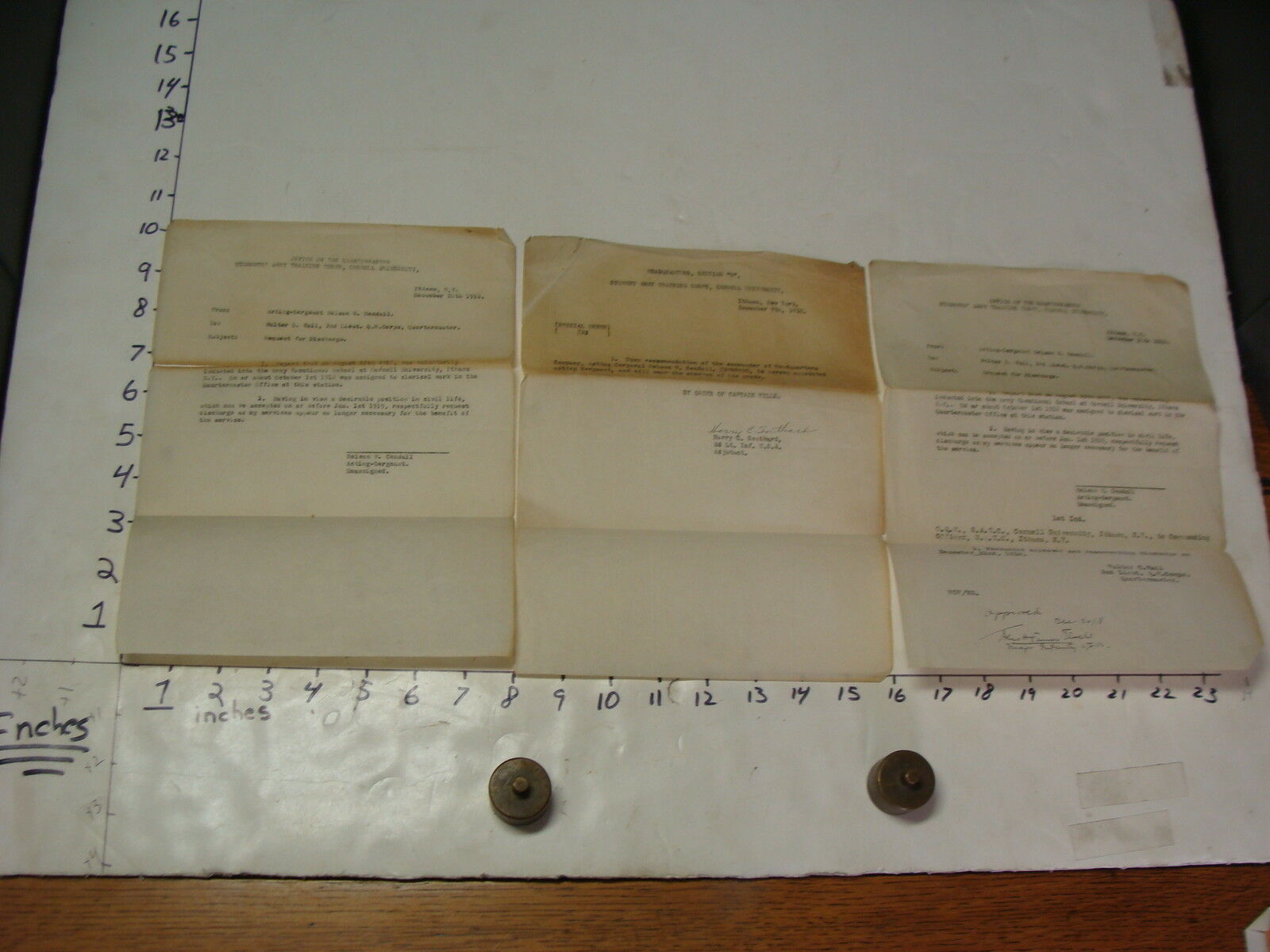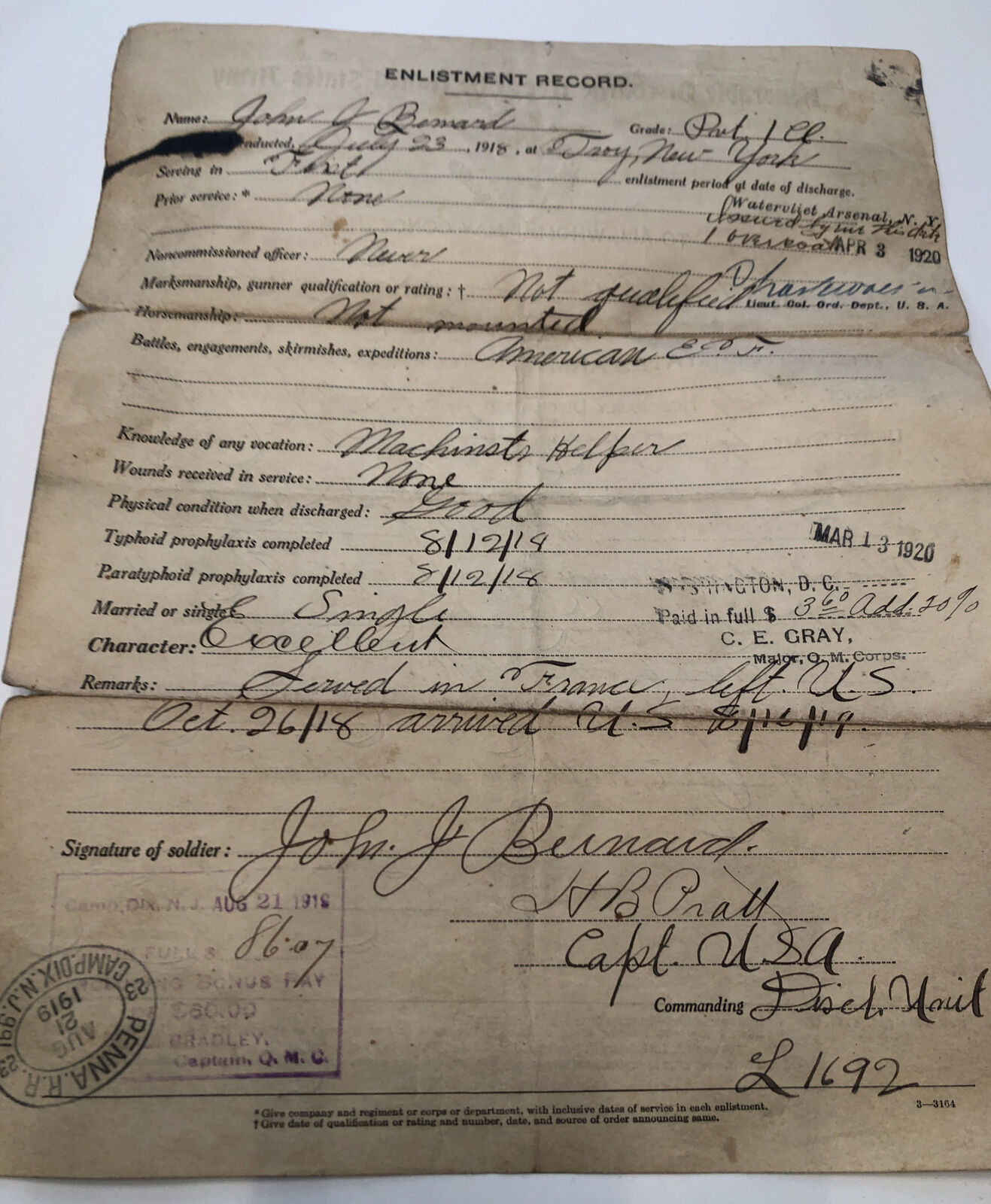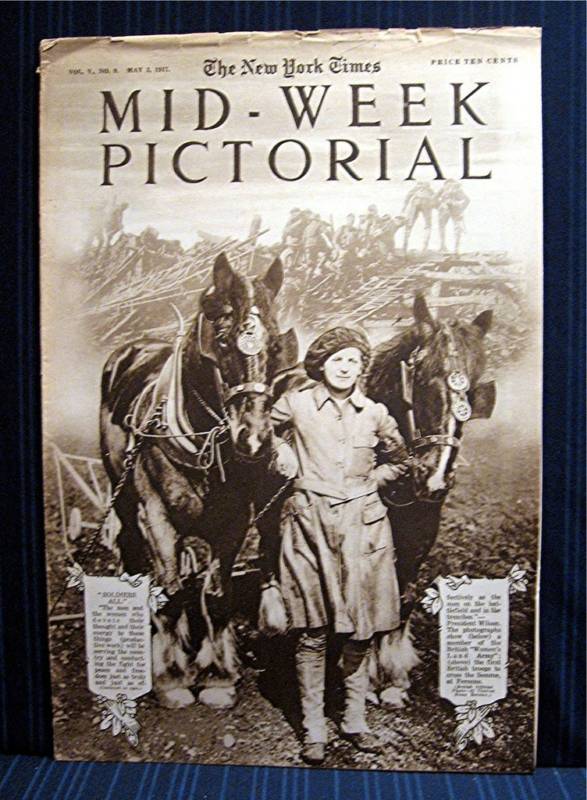-40%
USMC WW2 Brigadier General Clarence Burpee 2nd MRS WW1 Honorable Discharge Paper
$ 683.75
- Description
- Size Guide
Description
Please note the only item offered here is the discharge paper. The other photos are for information only.In a nutshell, "he was responsible for the entire railroad infrastructure in the European Theater of Operations." as commander of the 2nd Military Railway Service.
Just another incredible piece of history I am offering, this is a one of a kind item you will find nowhere else, and quite frankly belongs in a Museum. This is his WW1 discharge, he was very young, but he would go on to become a very important player in the European theater during WW2.
The picture shown is of him (left) with another Major General (looks like Walter Smith?) in Operation Overlord, commonly known as D-Day. He appears to be setting a railroad, which was his command duty. This is in Tourlaville, just east of Cherbourg.
Burpee, Clarence Lemar
Brigadier-General
* 12th of September 1894
† October 1956
Service
1942-XX-XX – 1943-XX-XX Commanding Officer 703rd Railway Grand-Division
1943-XX-XX Director of Military Railways Italy
1944-XX-XX – 1945-XX-XX Assistant Chief of Transportation Military Railways Division, US European Theater of Operations
Text of Discharge is below:
United States Marine Corps
TO ALL WHOM IT MAY CONCERN:
KNOW YE, That CLARENCE LEVAR BURPEE
a Corporal of the U.S. Marine Corps, who was enlisted
the 4th day of July, 1918, at Paris Island, S. C. to
serve for the duration of the war, is hereby
Honorably Discharged
by special order of the Major General Commandant.
FOR THE CONVENIENCE OF THE GOVERNMENT
Said Clarence Lemar Burpee was born September 12th, 1894
at Jackson, Georgia, and when enlisted was 68 inches high,
with Brown eyes, Brown hair, Dark complexion;
occupation. Yard Master; citizenship, U.S.
Accepted for enlistment at Recruiting Station, Jacksonville, Fla.
GIVEN under my hand and delivered at....N.O.B., Hampton Roads, Va.,
this 13th day of August, 1919
Paid in full 1.30
Character: Excellent
Charles P. Phelps
- Captain
.U.S.M.C., Commanding Marines.
4-4696
(OVER)
MILITARY RECORD.
Previous service ---None
Promotions and reductions
Promoted to Corporal January 8th, 1919.
Marksmanship qualifications Qualified as Marksman August 18th, 1918.
Sea service None
Foreign service With American Expeditionary Forces, France, September 25th, 1918 to
- to July 30th, 1919.
Wounds received in service None
Battles, engagements, skirmishes, expeditions
American Expeditionary Forces, France.
from September 15th, 1918 to
August 8th, 1919.
Military efficiency Excellent ---- Obedience Excellent - Sobriety --- Excellent -
Remarks Service honest and faithful. Recommended for re-appointment in
present non-commissioned grade upon re-enlistment
Mileage paid to Jacksonville, Fla., .50
UNITED STATES MARINE CORPS HDQ'RS. S. E. RECTG. DIST.
403 AUSTELL BLDG
N. FORSYTH ST
ATLANTA, GA.
BRONZE VICTORY BUTTON FURNISHED
(Date) 6/13
Victory Medal issued this date
(signature) 4--4696
0109? Post or(crossed out) Station
N.M.C. 2571 A& I
Terminal Station
Aug 13 19.
Norfolk, VA.
(signed) Charles P. Phelps
Captain U.S.M.C.
Commanding Marines
CLARENCE LAMAR BURPEE
Born: September 12, 1894 Jackson, Butts, Georgia, USA Died: October 4, 1956 Jacksonville, Duval, Florida, USA Buried: After October 6, 1956, Evergreen Cemetery, Jacksonville, Duval,
Florida, USA
Occupation: Railroad and Transportation Supervisor, Jacksonville,
Florida, USA
Notable Accomplishment: Brigadier General, US Army, European
Theater, World War II
An excerpt from "Biographical Sketches of Extraordinary Burpees from North America"
Clarence Lamar Burpee was the second of four children born to James Arthur Burpee and Katherine Milledge Smith. His father died when he was only eight years old. His mother remarried after the passing of his father. Clarence never married dedicating himself to his Country and its military service.
There is little known information about him outside of his military service. Clarence Burpee registered to join the United States Marine Corp on July
4, 1918. By September 25, 1918, he is reported to have been in France to fight in World War One. He continues to be assigned in France through August 13, 1919. On January 8, 1919, he is promoted from private to corporal.
Prior to his enlistment in World War II, he was the Superintendent of Terminals, Atlantic Coastal Lines located in Jacksonville, Florida. This railroad terminal was, at the time, the largest such facility in the South. In fact, many of the officers who were later affiliated with him in Europe were fellow employees of this railroad organization.
During the World War II invasion of Normandy, Burpee landed with his Second Military Railway Service and thrust westward into the European continent. Colonel Burpee became commanding officer in the 703rd Railway Grand Division of the Allies during World War II a post that he held from 1941-1945. In this position, he was responsible for the entire railroad infrastructure in the European Theater of Operations. To highlight the impressive work that Colonel Burpee and the Second Military Railway Service did, the following Stars and Stripes news article appeared in 1945.
All aboard for Berlin, NOTHING DAUNTS THE RAILROADERS
THE Folligny yards in Normandy were covered by burned and twisted steel, charred railway cars, and rubble from blasted buildings. Bomb craters overlapped. The couple of skeleton buildings still standing became headquarters of the railroad battalion assigned to operate the line from Folligny to Le Mans ...
Running the military railroads on the continent is the job of the Second Military Railway Service, commanded by Brig. Gen. Clarence L. Burpee, of Jacksonville, Fla., who came into the service from the Atlantic Coast Lines. The majority of his officers and men are also former railroadmen, and their railway outfits now operating in France and Belgium originally were sponsored by railroads back home. The ace alumni of 35 U.S. lines are currently represented in every aspect of Army railroading on the continent.
Military railways resemble civilian roads in organization. Headquarters of the Military Railways Service corresponds to the office of the general manager. Next comes grand
divisions, each of which is similar to the office of a general superintendent and operates a section of line. Under the grand divisions are the operating battalions to run the trains, and the shop battalions for heavy maintenance.
Since D-Day, the 2nd MRS has done a whopping job of hauling supplies to the front by virtue of its extraordinary organization and administration set-up. General Burpee's outfit inherited a railway system at a standstill. What our bombers hadn't smashed, the Germans had wrecked before they fled. The first job was to repair track, yards, telephone lines.
Most of the repairs of railway lines were handled by the Corps of Engineers. Since D-Day, their general service regiments repaired over 1500 miles of track, erected 100 railway bridges, rebuilt signal houses, marshalling yards, railway stations. One bridge thrown up by the engineers originally had been destroyed by American bombers, rebuilt by the Germans, smashed again by the R.A.F., and when finally captured was rebuilt once again by the engineers.
An interesting excerpt from a military paper of the war dubbed an express train for the furlough of military personnel as Burpee's Bullet for the expediency of getting soldiers on R/R from Bad-Godesberg, Germany to Namur, Belgium.
In May 1947, President Truman recommended to the United States Senate the appointment of Clarence Burpee to become a general officer. At approximately the same time, General Burpee was awarded the Distinguished Service Award and the Legion of Merit Award. On December 28, 1949, General Burpee was a passenger sailing on the General Daniel I Sultan from Yokohama, Japan to San Francisco, California.
As a tribute to General Burpee's long-standing military career and his accomplishments during World War II, a United States Army Reserve Center located in Jacksonville, Florida was dedicated to him in 1957.
H20
